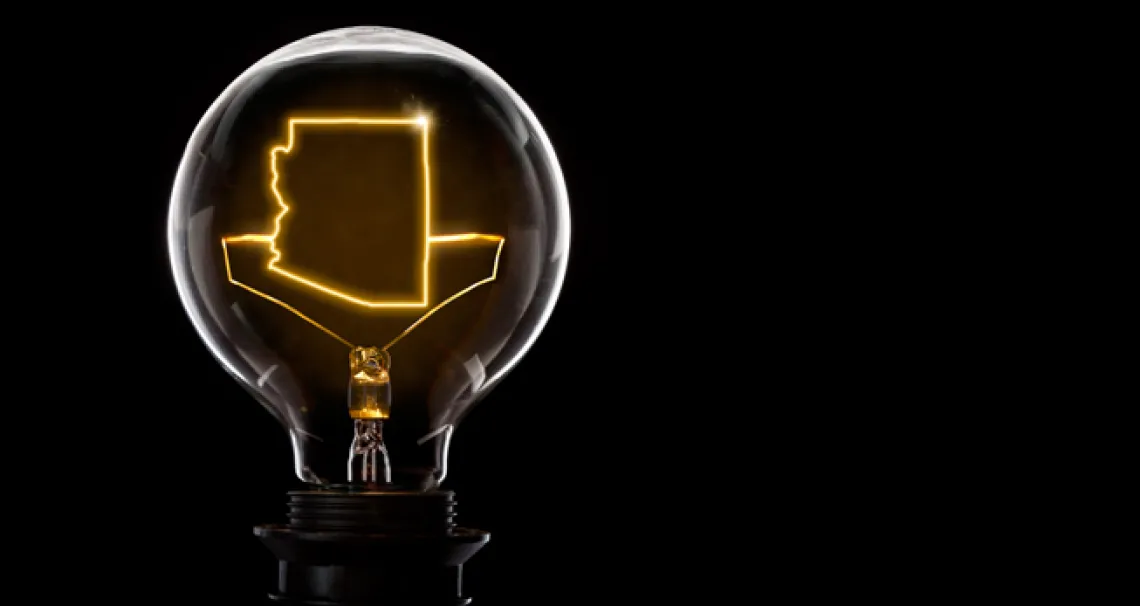U.S. Patent and Trademark Office Designates University of Arizona Law as State’s Pro Bono Hub for Inventors

In response to growing demand from both students and business and technology sectors, University of Arizona Law is dramatically expanding its Intellectual Property (IP) Law program.
Arizona Law’s IP & Entrepreneurship Clinic is now the state hub for the United States Patent and Trademark Office (USPTO) pro bono program, which provides free legal assistance to under-resourced inventors seeking patent protection. Only three other law schools in the country serve as hubs.
Under this initiative, dubbed the Arizona Public Patent Program, Arizona residents who want to file a patent application can apply with the college’s IP and Entrepreneurship Clinic for assistance, and the clinic will review their file and match qualifying clients with an Arizona attorney for pro bono legal services. The clinic—which doubled its caseload between spring and fall 2016—will also offer attorneys the services of its students to assist on those cases.
The pro bono designation will allow students to build closer relationships with IP attorneys in the state and potentially gain new case experiences, while Arizona residents can get free help with a complex legal process that can cost up to $20,000. In 2015, nearly 3,000 patent applications were filed in the state. Before Arizona Law earned the designation, Arizona residents were funneled to a California pro bono program.
New Program Lets Students Practice Before the Patent Office
Arizona Law has also been admitted to the USPTO Law School Certification Program, allowing IP Clinic students to practice before the USPTO (under the guidance of a faculty supervisor), file patent applications, and negotiate directly with patent examiners—work that otherwise could not be done until graduating from law school and passing the patent bar exam.
“Patents are such technical documents in terms of how they are written and interpreted that it can be difficult to fully understand them based solely on classroom learning,” says second-year student Kimberly Soto, one of three IP & Entrepreneurship Clinic students who in January became the first students at Arizona Law to ever receive temporary practice numbers to practice before the US Patent and Trademark Office.
“This certification is especially helpful to hands-on learners such as myself, because it provides the opportunity to work through and understand the process of writing and filing a patent, from start to finish.”
Soto adds that because this is a unique certification that allows her to build high-level transferable skills, she anticipates it will help her resume stand out to employers and introduce career opportunities that might not otherwise be available.
Clinic director and professor of practice Allan Sternstein agrees.
“These new opportunities will give Arizona Law students even more exposure to the everyday work of intellectual property law, allowing them to enter the workforce with a more sophisticated background and experience that allows them to contribute on the job from day one,” says, Sternstein, who is also a partner at Lathrop & Gage, where he is assistant division chair of the Intellectual Property Division and head of IP Litigation.
New JD Certificate, IP Classes, Law Journal, Moot Court Competition Team
The USPTO designations come on the heels of expanded classroom and co-curricular offerings for the intellectual property program.
JD students can now earn a certificate in Intellectual Property, and they also have access to two new courses available: patent prosecution and experiential patent litigation. Longtime Tucson patent attorney Dale Regelman, a partner at Grossman, Tucker, Perrault & Pfleger, has joined the faculty as a part-time professor of practice to teach the patent prosecution class and serve as a faculty clinic supervisor for students in the USPTO Certification Program.
Arizona Law has also authorized the formal establishment of a team for the Giles S. Rich IP Moot Court Competition, the oldest and most prestigious IP-focused moot court competition and the only national competition specifically on patent law. The college competed for the first time in 2016 (Jingyuan (Joey) Zhou and Ryan Wekerle, left) and earned a top-two finish at the Southwest regional to advance to nationals.
Another new addition to the program is the student-run Arizona Law Journal of Emerging Technologies, due to publish its first issue this spring. Led by faculty supervisor, Professor Derek Bambauer, the journal is an interdisciplinary publication that collaborates with other University of Arizona units such as science, engineering, and business.
“Intellectual property crosses the domains of law, science, business, technology, the arts and much more, so we’re fortunate to be housed at a university with strengths in so many disciplines with which we can partner,” Bambauer says. “Whether it’s working with Tech Launch Arizona to file patents on behalf of university inventors or collaborating with Eller College of Management students on a journal article exploring trade secret policy, there are a lot of exciting opportunities for IP law students here.”
